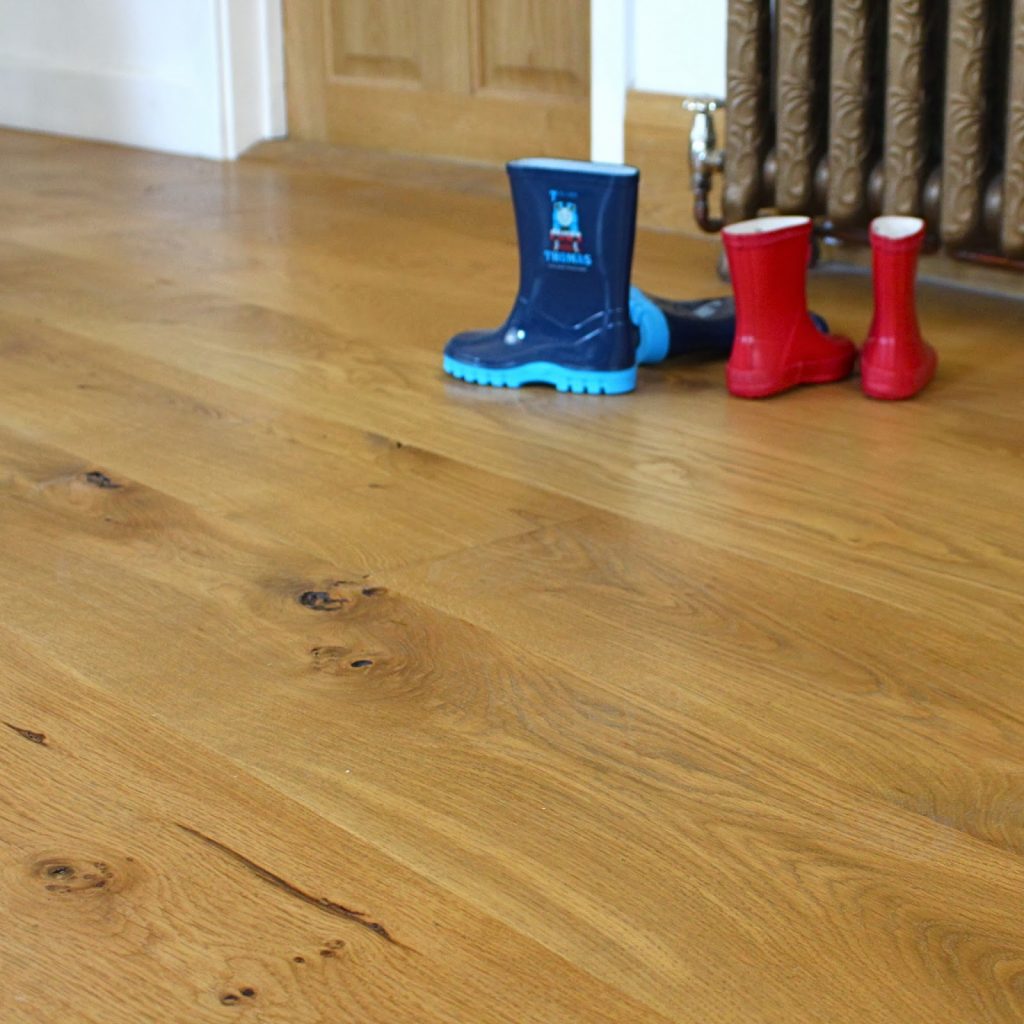In 2000 I was tasked with setting up and managing a new flooring division for one of the UK’s largest timber importers. Within three years we we’re manufacturing and distributing approximately 3000m2 of solid French Oak flooring per month. Upon leaving eight years later to set up my own company, Eden Clay, sales where less than 1000m2 per month.
Solid v Engineered
Restoration. We have undertaken several restorations in the last two years, from replacing a few loose and damaged softwood blocks in a 50 year old herringbone floor to manufacturing 100m2 of 28mm thick quarter sawn French Oak for a 18th Century drawing room floor. Exact reproductions of the original floors where produced in both of these projects. Although possible to restore these floors using engineered alternatives, this is typically more expensive and time consuming due to the construction process and, as in the case with the 18th Century property, often not acceptable for heritage reasons. Winner: Solid.
Longevity. An engineered floor generally has a real wood surface veneer of 3-6mm. This would allow them to be commercially sanded, for restoration purposes or just to change the appearance, at least once but no more than twice before you come close to removing all the veneer. Solid floors however, depending on how low the tongue and groove have been machined, general allow for two to three commercial sands thanks to a 6-10mm surface. Ok this may be a slightly mute point, as if finished correctly and maintained regularly, most floors are unlikely to require a commercial sand more than every 10-15 years, if at all, but a solid floor will give you the flexibility to refurbish your floor, to keep up with changing trends for example, almost indefinitely. Winner: Solid.
Natural. Looking for a floor containing the beauty of its natural roots (pun intended), such as large knots, then solid flooring could be for you. Picture a plank of wood with a beautiful unfilled deep knot in the middle. Slice a 4-6mm veneer from the surface of this plank and watch this beautiful knot disappear in to a literal black hole. This veneer is then fixed to its engineered base an the hole filled, typically using a black filler. This is often what happens with engineered boards, particularly cheaper ones, where larger knots and other characteristics become large blobs of filler. Take that same plank of wood, machine a tongue and groove, sand the surface and you have a stunning floor board containing natures perfection. A lovely example of this is our Sancerre Solid Rustic French Oak Flooring. Winner: Solid.

Tradition. Next time your out driving, take a look at the cars people drive. You will often come across an old Volkswagen Beetle, Ford Capri or Austin Healy. If your really lucky (and I use the term loosely) you will occasionally spot a 1960s Morris Minor or Robin Reliant.

Why, when there are so many affordable, and frankly more reliable, alternatives available, would anyone drive a “classic” car. Just for that precise reason, its classic. There are a selection of people who take great pleasure from the beauty and nostalgia driving a classic car brings. These are the same people that have an appreciation of the craftsmanship in a handmade watch or the history of an antique piece of furniture, and, for a traditional solid wood floor. Theres often no rhyme or reason for choosing solid over engineered for these individuals, just an emotional desire to know its there, underfoot, in their home. Winner: Solid.
If the nature of solid wood flooring is understood, if its acclimatised and installed correctly, it can even be used over underfloor heating. So is there a place for solid wood flooring in todays modern world of underfloor and centrally heated homes? If purchased from a specialist that understands the limitations of solid wood flooring, as well as its benefits, then yes, absolutely.
You may ask yourself,” then why does Eden Clay not stock or offer more solid wood flooring”. Three reasons, environment, cost and stability.
Our engineered wood floors require the use of far less, often up to 75% less, of slow grown timbers, including Oak, and are predominately made up from the faster growing birch, used in our plywood base. Although we have 20mm thick flooring available with a 6mm veneer, we stock and promote the use of our 15mm thick flooring with its 4mm veneer as we can achieve a third more yield from our Oak.
Over the last 20 years the production costs and quality of engineered wood flooring has vastly improved. With a few cheap exceptions, notably from the far east, quality engineered wood flooring is now cheaper than comparable solid wood flooring.
With the increase in underfloor heating use and more efficient heating and insulation, todays interiors require a wood floor that can cope with these demands. Engineered wood flooring is designed to be more stable than solid wood and is therefore ideal for todays climate. Being far more stable engineered wood flooring is also available in much wider widths that solid wood flooring.
